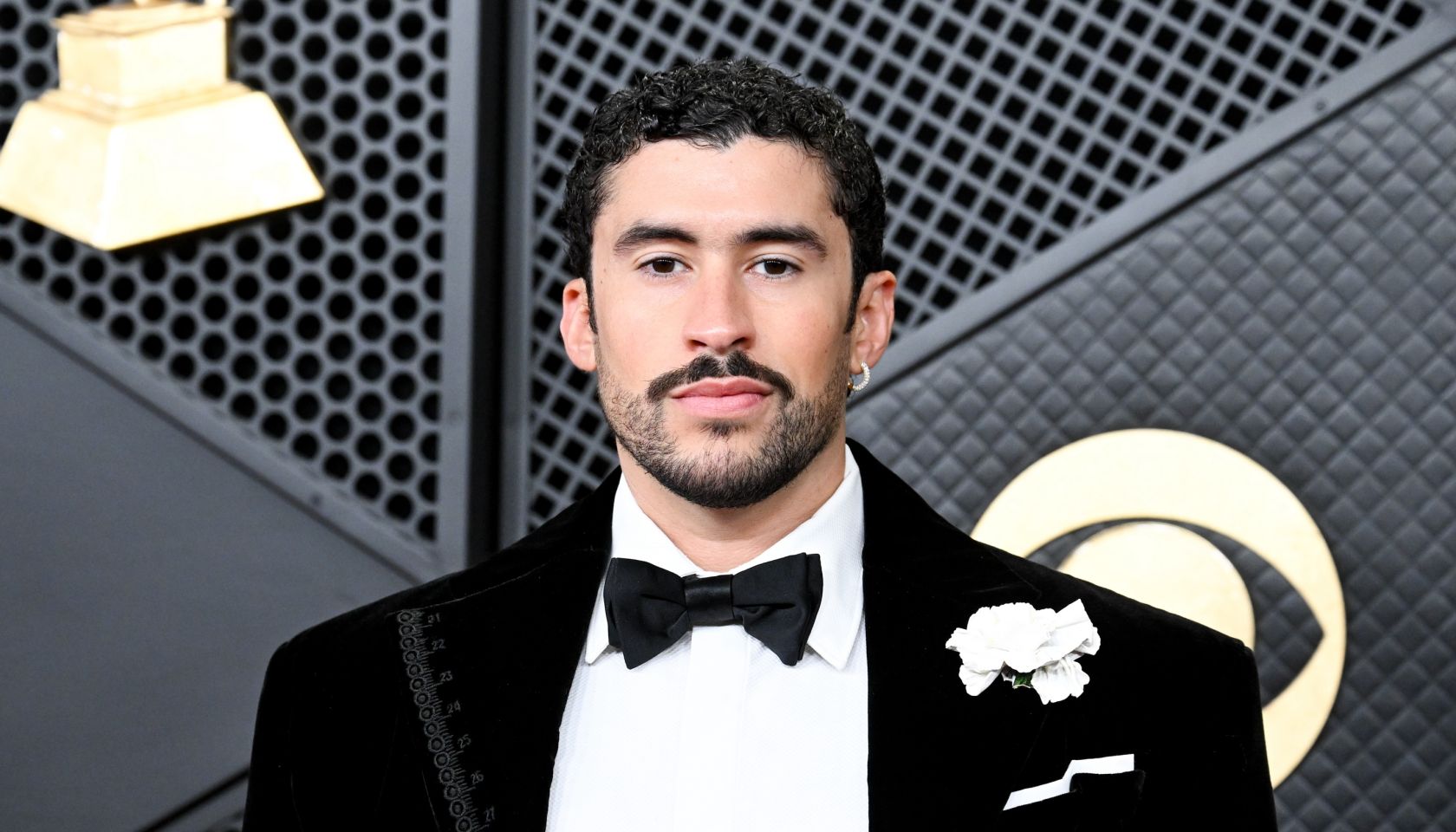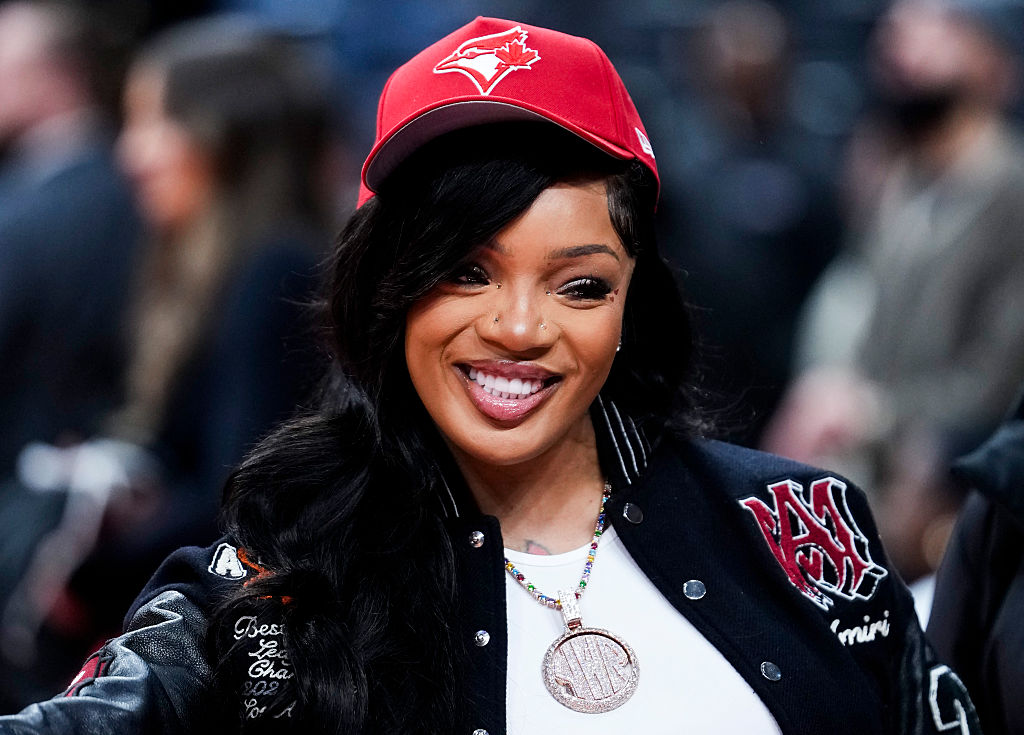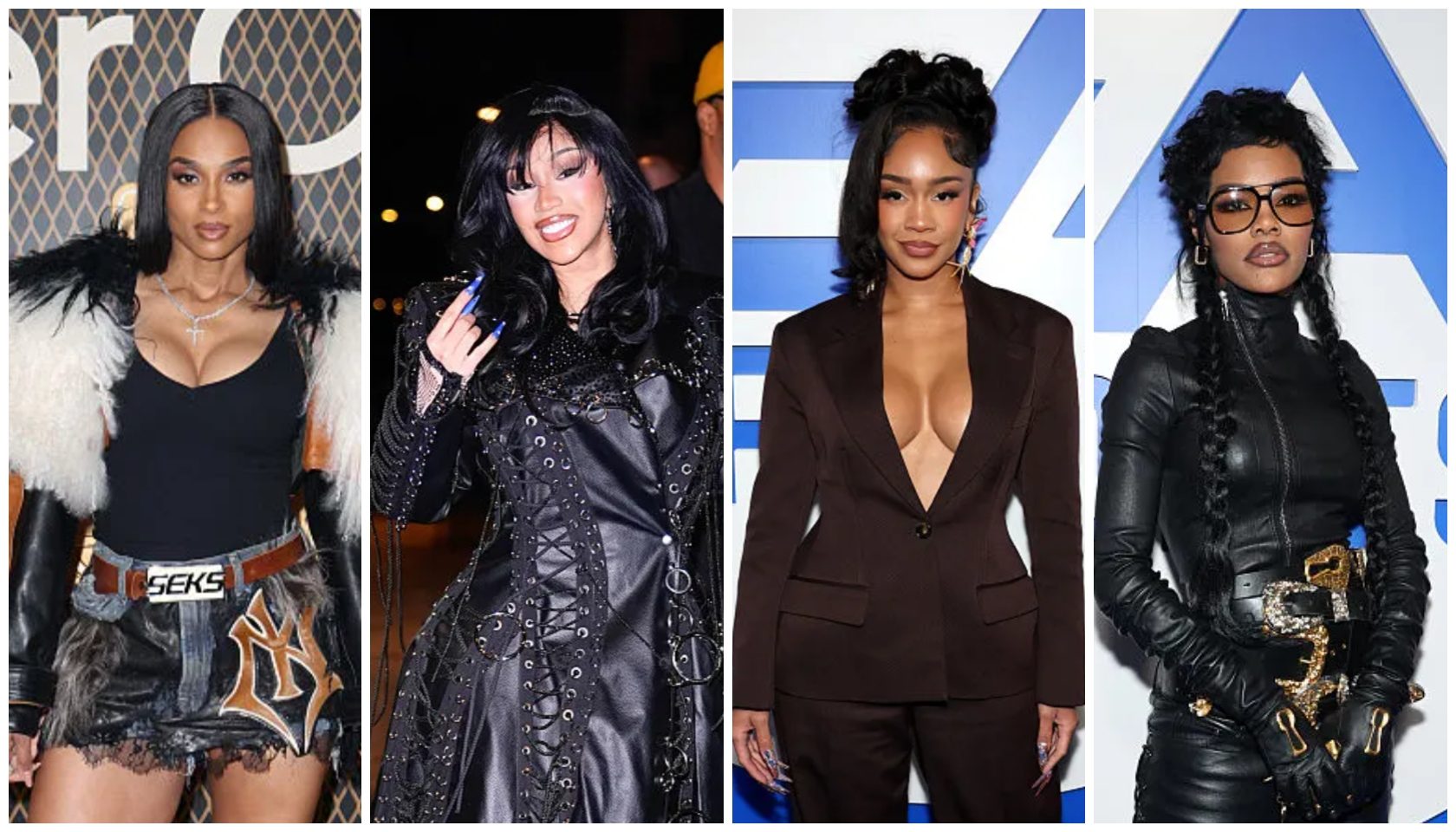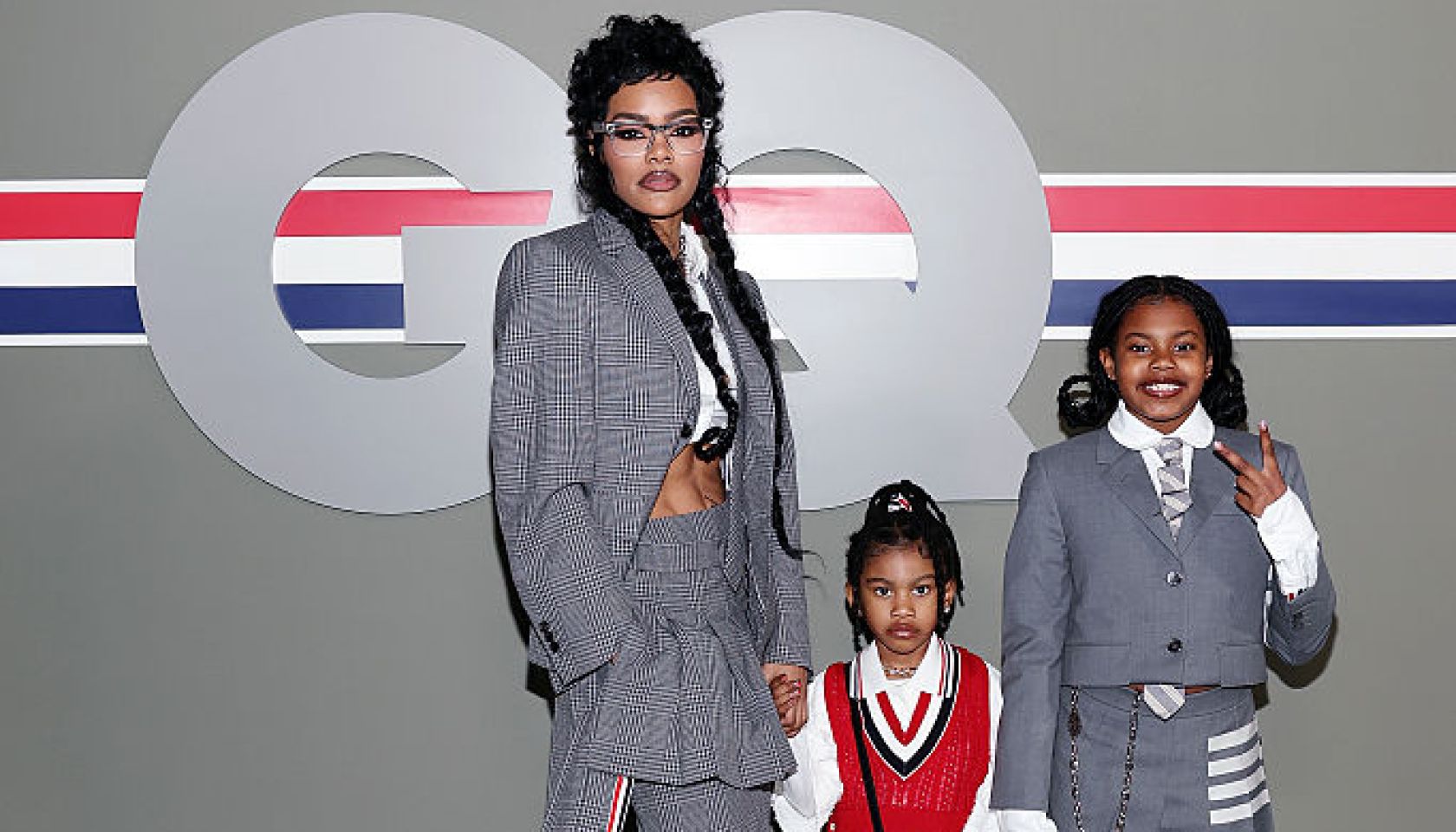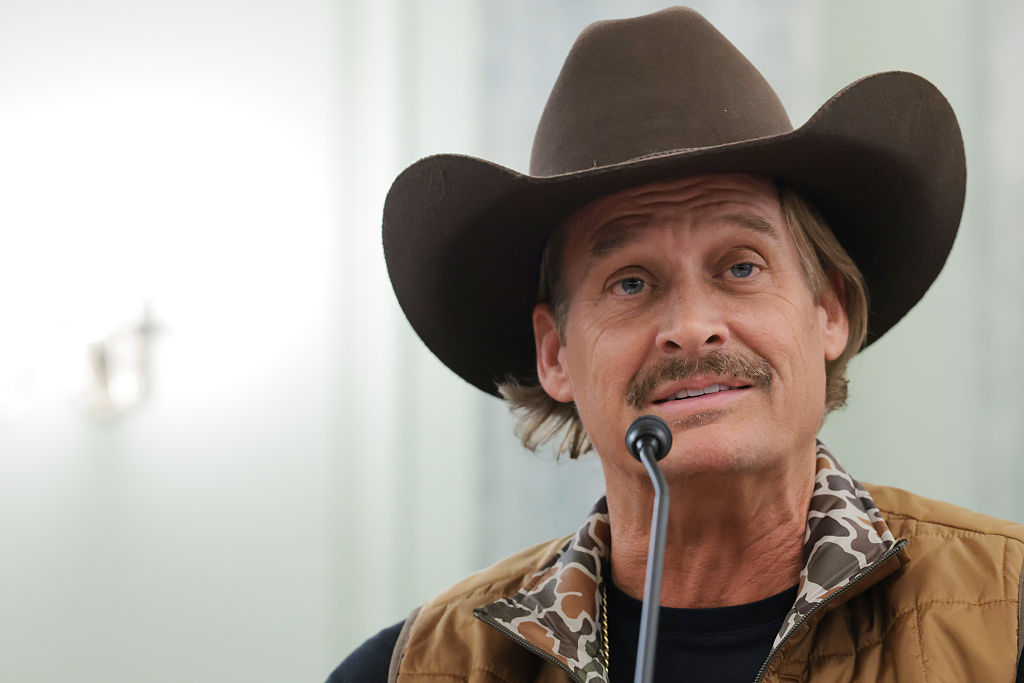Nzingha Stewart Talks Race, Gender And Directing "Little Fires Everywhere"
BOSSIP Exclusives: Director Nzingha Stewart Reveals Her Surprising First Day On The Set Of “Little Fires Everywhere” - Page 3
Share the post
Share this link via
Or copy link
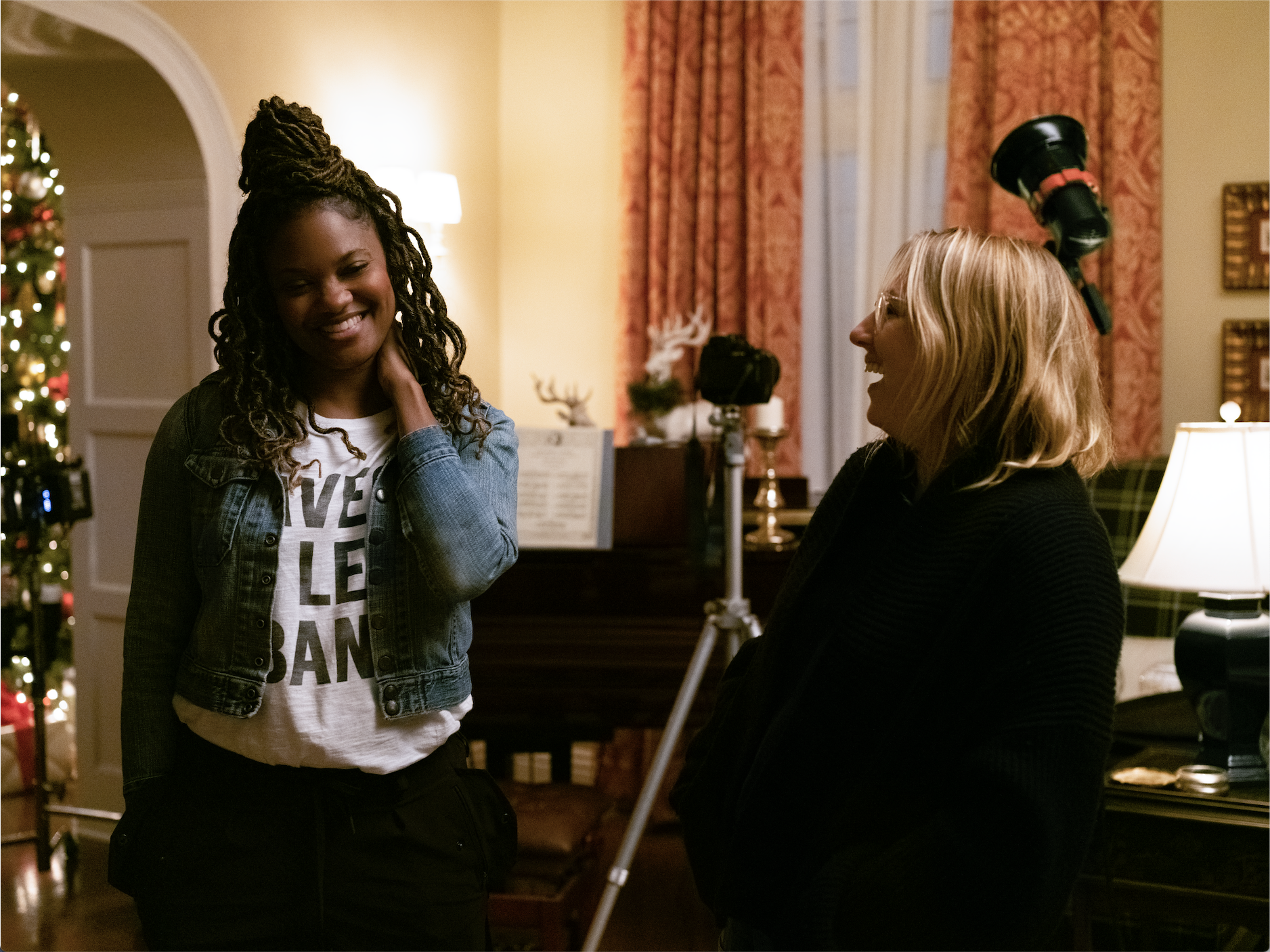
Source: Courtesy Hulu / hulu
If you’re anything like us, you’ve been eagerly lapping up every episode of “Little Fires Everywhere” as soon as Hulu makes them available. There are so many great elements to this show — a strong story, realistic characters and TONS of drama and tension. While we’ve really been loving watching Kerry Washington, Reese Witherspoon and the rest of the cast play out their issues in Shaker Heights, OH circa 1997, Episode 106 has had the internet really buzzing as the series travels back over a decade to young Mia (played brilliantly by Tiffany Boone) and young Elena (played by Anna Sophia Robb) and explains A LOT about who these young women become. We have Nzingha Stewart to thank for the amazing direction on the last episode of “Little Fires Everywhere.” Bossip caught up with the acclaimed director to chat about working with Kerry Washington and Reese Witherspoon, Hollywood’s gender bias and why “manfirmation” is a real thing.
BOSSIP: How did you end up directing on “Little Fires Everywhere?”
Nzingha Stewart: I had actually read the book already and when I saw the announcement that they were making it I was like, ‘Ha, I wonder how they’re going to turn that into a series?’ Because so much of the book is what they’re thinking and looks. I was like, ‘I wonder how that’s going to work?’ But I was curious because I loved the book. And then I’d worked with Kerry on “Scandal” a couple of times and of course was hoping I’d get the call. I put it out there to my agents, like ‘if there’s any open directing I’d love to meet on it.’ But I was also scheduled on something else and that thing wasn’t quite ready, but they weren’t quite ready to let me do anything else when we did get a call. So I was like, ‘we HAVE to make this happen.’ We gotta bargain, we have to do whatever we can to get this other job to give me the time to let me do that one.
So they did and I was super excited about doing it and again I’d worked with Kerry, so I knew how great she was. I hadn’t worked with Reese. I was a little intimidated, like ‘what is this going to be like? Is it going to be a whole different thing?’ Because she’s a huge movie star. She was wonderful.
BOSSIP: What was your first day on set with Reese Witherspoon like?
Nzingha Stewart: My first day with her was actually one of my worst nightmares come to life. I have that dream that we all have where we’re in school and we didn’t study for the test, but my nightmare as a director is that I show up on the set and I’m not prepared, I don’t know what we’re shooting or what the scene is, so I’m not ready for it. When I showed up here, I literally had been here for like a week and was kind of walking around the stages, checking them out and thinking of ideas for my episodes, kind of figuring them out. Then I saw they were filming something for another episode and someone was like, “So are you ready for your scene?” I was like ‘WHAT?!’ They were like, ‘ Yeah we’re going to shoot your scene in a half hour. I was like ‘What are we talking about?’ and they were like, ‘Ohhhh, did they not send you that email?’ I was like ‘UH, no, nobody sent me that email, I don’t even know what we’re talking about right now.’
And it wasn’t my AD, it was the AD from the other unit so, he was like, “Oh, I thought somebody had communicated it.” I was like, ‘Well what is the scene?” So he told me what it was. So I was like, we have 30 minutes, I have to figure out what we’re going to do with one of the biggest movie stars on the planet. It worked out fine. Luckily it was a very short scene and I did have the time to pull it together so I didn’t embarrass myself. But that was how it started. She [Reese Witherspoon] was so incredibly gracious. She was like, ‘ Wow I can’t believe you didn’t know we were shooting this scene today.’ It obviously got better from there. That’s my worse nightmare. Showing up not knowing what was going on. But it worked out fine and everybody was fantastic.
BOSSIP: What was it like working with the two of them together, Reese Witherspoon and Kerry Washington?
Nzingha Stewart: I felt like I learned so much from working with the both of them [Witherspoon and Washington] and felt so inspired by their level of commitment that it felt like, ‘If they’re bringing it like this, I can’t make an excuse, even to myself, when I come home at night, ‘like I’m tired, I worked hard today, I’ll figure it out in the morning.’ I felt like if they’re bringing that level of commitment to it, then I can stay up another hour and work as hard as I can to make sure that I’m prepared tomorrow and especially if I can like make Kerry and her team, who brought me to the table look good.
BOSSIP: So what was the scene that you shot that first day?
Nzingha Stewart: It was in 107 and it was just a scene where Reese gets a call and has to react to hearing Izzy’s been bad again. I always like to think, ‘where does this scene fall chronologically,?’ because they’re shooting scenes out of order and you’ve got to be able to tell them, ‘the last time we saw you — in this episode you were doing XYZ, this is where you are in your trajectory with Izzy, this is how you feel coming in this moment from the other scenes, because sometimes they’re like, ‘what was I doing in the last scene? what was happening when we shot in the scene right before this? So it was just rushing that work through.
Check out Nzingha chatting about episode 106 with Kerry Washington, Anna Sophia Robb and Tiffany Boone below, then hit the flip for more of our interview with her!

Source: Courtesy Hulu / hulu
BOSSIP: Working with so many young actors on this project, is there anything you have to do differently or be more aware of?
Nzingha Stewart: I think the big thing with directing younger talent… A) they definitely take it as seriously as the adults, so I never had to worry about ‘Are they coming to set prepared? Do they care? Are they committed? I didn’t have to worry about any of that – because they were. I think I just had to keep aware for myself, they are kids, so when you give notes — sometimes, when you give notes to adults there is some pushback and you have to remind them not to take it personally. A lot of times I’ll put it on myself, and say, ‘Oh I made a mistake, I think this scene is actually about XYZ, can we try it that way?’ I did not have that issue with Kerry and Reese. They really just approached it as work and there was no taking it personally, they were really just trying to be on the same page about why the note is being given. With younger talent I have to always think, ‘With kids, you give a note and they might think they did something wrong and that’s why you’re giving the note. You have to remind them that they are doing a fantastic job and we might just want to have another option in the edit.’ Or I have an idea and let’s try it, let’s play with this scene,’ and make it something fun to try something new, rather than them thinking you didn’t get what you wanted.
BOSSIP: We noticed a lot of the write ups about you put a lot of focus on your being a female director. With glaring omission of female directors from Oscar nominations this year, during such a female driven time, is it ever a frustration that so much emphasis is put on gender? Do you think the time will ever come when that’s not the case? What do you think it will take for that to change?
Nzingha Stewart: I think it’s frustrating that the story has to exist. I’m glad that the story exists because at least people are saying ‘Hmmm, that’s not right.’ So I’m happy that people are talking about it and continuing to say, ‘That’s not right. There should be more female directors.’ I’m sad that the conversation has to happen at all because there aren’t. And obviously, when you’re a black woman you’re fighting this on two fronts. Maybe they have their quota of female directors but none are black.
It’s interesting because the character Brian [Stevonte Hart], he goes through — and he’s young — I told him I so relate to this character, because I got through this every day. He tells Lexie, ‘When you go off to Yale, they think you got there on merit. When they see me, they think I’m there because I’m black.’ So when I do get a job, do I have to undo a lot of preconceptions because do people think I’m there because they had to give a woman a job or they had to give a black person a job? And it’s tough.
I once made up a phrase called “manfirmation” because they’ll ask me a question and then they’ll ask a man to confirm if it’s right and I always say, ‘Stop manfirming me. This is right. I know what I’m doing. Go do what I said. Don’t ask anybody else. I know why I asked you to do that.’ I’m happy the story is being written about and being talked about. Women and black people and people of color should have the same chance of anybody else, but I also want people to know when we have that chance, we do understand we’re working on high profile projects, we’re working with big budgets, we’re working with big names. We know what we’re doing. We have a right to be there also because we’re good.
Hit the flip for more of our conversation with Nzingha Stewart.
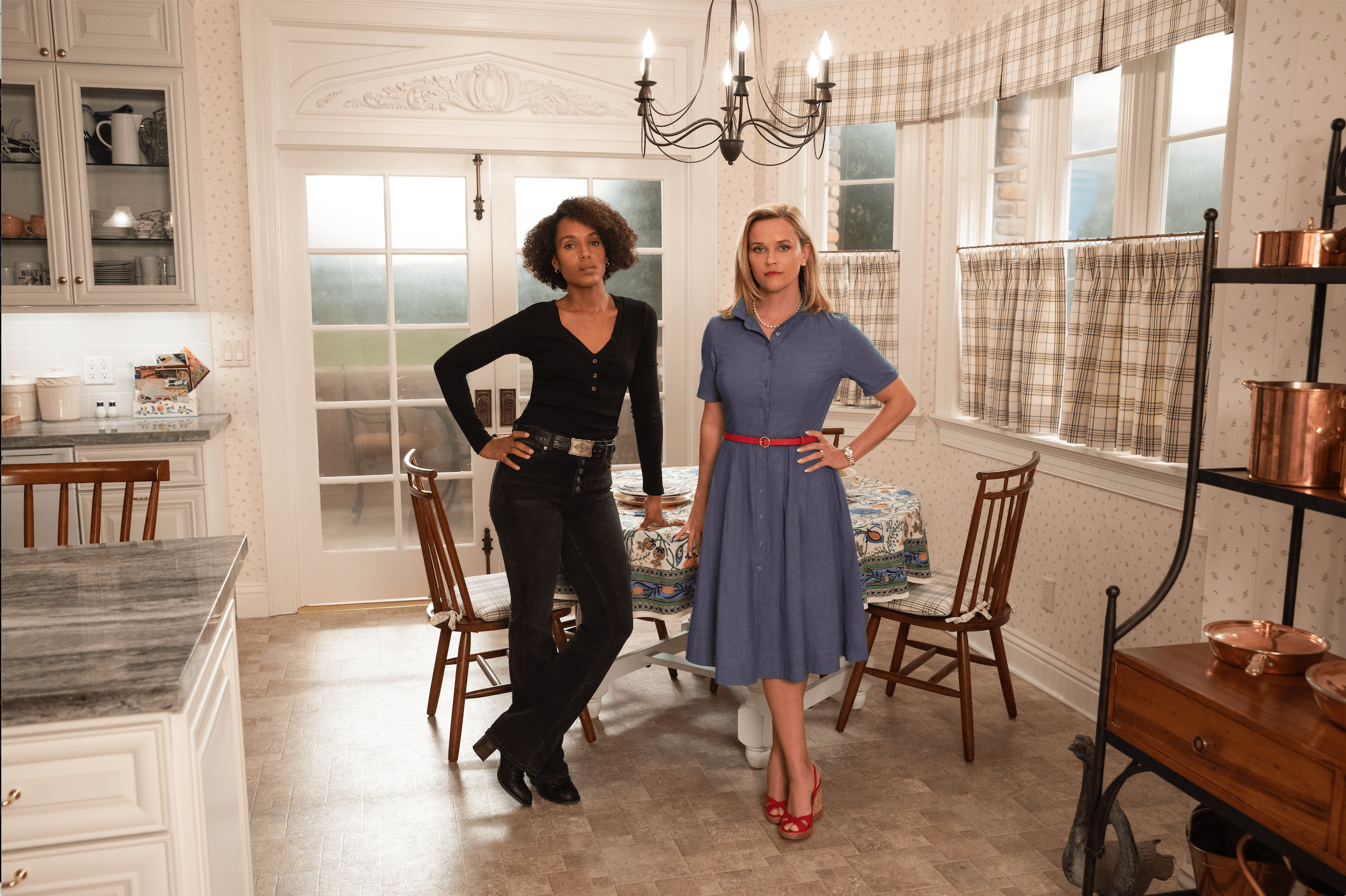
Source: Courtesy HULU / hulu
BOSSIP: While we’re talking about race — we often get called to cover the “diversity” or “multicultural” projects. Once Reese Witherspoon is involved it’s a lot different. We wanted to ask about the differences between “diverse” projects vs. mainstream ones for you as a director:
Nzingha Stewart: I think the differences on set are primarily ones of budget. The “diverse” projects sometimes don’t have the budgets that other projects have. Unless we’re talking about Shondaland, which I work in quite a lot. Those are very diverse and those have money. That gives you a chance, not that having money, those projects are better or not better, it just gives you the chance to prove that you can manage a big budget and a large crew, and sometimes special effects, and sometimes stunts, and you can do a good job.
I think with this project, it also spoke to how important it is to have other black people in a decision-making role. I think this team was SO amazing, it probably was important to everybody to have a diverse group of cast, crew, directors… Specifically to me, it was Kerry Washington who had worked with me on “Scandal” who brought me to the table, and if Kerry hadn’t had the power that she had as a producer, could she have done that? It was important to have somebody with clout that said, ‘This is who we want for these episodes.’ Now I’m working on something with Hello Sunshine. Now that we’ve had the exposure, Reese and those guys love me so now we’re working on other projects.
BOSSIP: “Little Fires Everywhere” is adapted from the book by Celeste Ng. Some fans of the book may feel a way about how it’s been translated to screen. How would you address the critics and can you address the challenge of adapting for TV?
Nzingha Stewart: Books are tough with critics when you make that leap because it’s never good enough — there is something that makes people feel smarter in saying, ‘The book was better,’ because really what they’re saying is, ‘I read the book!’ So that is one of those categories where you are never going to make people happy if it was a book before… Every single Harry Potter got the same criticism and probably made a billion dollars. It is one of those things that makes people feel smart to A) say they read it and B) be in an elevated position from which they can critique it and compare it and say that.
As far as the adaptation of this book, I think this was also something that brought an element of race into a situation that sometimes makes people uncomfortable. And also sometimes I saw the character as this race in my head and now it’s something else and it’s like when Fox News gets all mad because of Black Santa Claus. And it’s like ‘Santa Claus isn’t even real’ who cares if he’s black or white? but people get upset. Or it’s like White Jesus. That would not be historically accurate for the Middle East, but that’s how they saw it in their head. I think it’s a similar dynamic where now they have to think about this thing they may not be comfortable with thinking about.
Hopefully at the end of it they have a new understanding that not only makes them comfortable but also able to see it from other perspectives. I think the addition of race creates an added tension and wherever you have tension there is more drama. I think there is more humor in it. I think a lot of the dialogue is really funny, I think if you had adapted it straight without the humor it would have felt like it was taking itself too seriously. I think it’s a beautiful adaptation and the writers room crushed it.
BOSSIP: When you finish a project like this, what’s the best part?
Nzingha Stewart: I feel like sleep, because you leave it all on the floor; but I think it’s when you’re in the edit room and you’re like “Oh that decision worked.” You really don’t know until you put it together. ‘Oh that was a good idea or that was a good shot.’ There is a buoyancy in the edit room where you’re like, ‘It’s working! It’s working! It’s working!’ It’s a wonderful feeling to have.
Then just seeing people’s reactions to it. Seeing what worked for them and talking to people about it is great.
Episode 107 of “Little Fires Everywhere” directed by Nzingha Stewart airs on Hulu this Wednesday. We hope you enjoyed our chat with her as much as we did!
- GloRilla Reveals Receipts After Deadbeat Daughter Accusations, Other Siblings Accuse Salty Sister Scar Face Of Repeatedly Robbing The Family - Page 3
- GYATT To Be More Careful! Danielle Brooks Bawwwdies Fans Into A Frenzy, Sends Social Media Into Swoonlivion - Page 3
- Big Game Gorgeousness: Meet The Sizzling Stunners Cheering From Sunday’s Super Bowl Sidelines - Page 3
Related Tags
Bossip Exclusives For Your Viewing Pleasure Hollyweird hulu Kerry Washington Race Matters TVStories From Our Partners
-

Whew Lawd! The Hottest Thirst Traps Of The Week, Vol. 129
-

'Oh! The Grammy Goes To Luther Vandross!' Funniest Tweets, Memes, Viral Videos & More From The 2026 Grammys
-

Big Game Gorgeousness: Meet The Sizzling Stunners Cheering From Sunday’s Super Bowl Sidelines
-

Social Media Erupts Over Nicki Minaj Cozying Up To Trump At DC Summit, Spirals Into MAGA Minaj Mayhem




